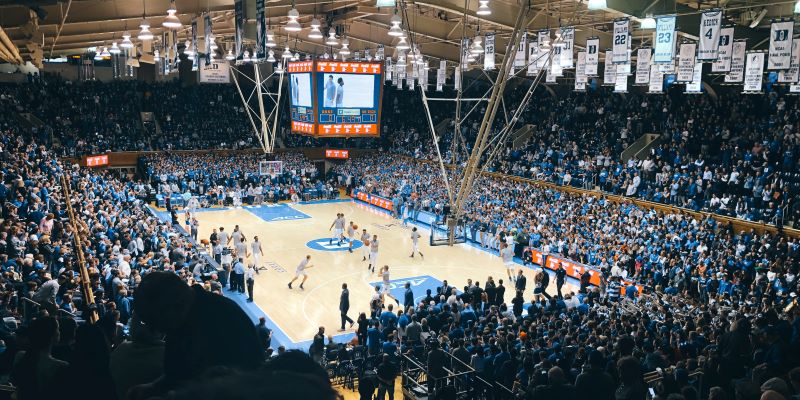Your Ticket to Employee Engagement
To many, March Madness is more than just a basketball tournament. It promises bracket competitions, buzzer beaters, and the occasional Cinderella story. And when it comes to seeing the NCAA tournament in person, there’s madness indeed. At Duke, tickets to see the men’s Blue Devils are so highly demanded that fans can’t simply purchase tickets; instead, they must enter and win a lottery before being presented the opportunity to buy tickets. In other words, the stars must first align before the credit card can work its magic. So, what are these tickets worth? You’d be surprised.
In 2002, psychologist Daniel Kahneman earned a Nobel Prize for his work on prospect theory, a behavioral phenomenon demonstrating that people often make decisions based upon losses and gains rather than an ultimate outcome. The endowment effect, a likely extension of Kahneman’s theory, is a cognitive bias illustrating that, when ownership has been established, we often lose sight of objectivity and place a greater value on our belongings. We all turn into a toddler, holding a saltshaker, yelling “MINE!” when being offered a much more expensive toy as an alternative. Data even shows that monkeys refuse to trade equally valued fruit or cereal once it belongs to them. If we view something as ours, we’re invested and don’t want to lose it.

A study published in 2000 examined the hypothetical buying and selling prices for tickets to see Duke in the Final Four. The price differences were stark.
“I will never forgive myself if I end up missing a great game,” Blue Devils fans declared over and over. Were these fans merely plagued by the fear of missing out, or was there something more to it? While the game itself could provide plenty of excitement and lasting memories, that didn’t seem fundamental to the values the fans theoretically assigned to buying and selling tickets.
“I will never forgive myself if I end up missing a great game,” Blue Devils fans declared over and over.
Maybe the thought of making a hefty profit was appealing. Though that seems plausible, the respondents didn’t emphasize an interest in making money. In fact, the recurring justification was that the game was a once-in-a-lifetime opportunity. They didn’t want to forego ownership of what they’d hypothetically acquired – or, in other words, they seemed to have an attachment to the tickets they viewed as theirs.
So, what was the disparity between buying and selling prices? When surveyed, ticket-less Blue Devils fans would be willing to pay nearly $170 to attend the game. However, if in possession of a ticket, these same fans would only be willing to sell the ticket for a price that averaged in excess of $2,400. That’s a 14x markup for the selling price versus the buying price – for the same tickets.
College hoops and primates aside, the endowment effect is ingrained in all aspects of human behavior. Another study, published in the Economist in 2010, focused on awarding employees with provisional bonuses they’d have to pay back if they didn’t reach their goals. People worked harder to keep a provisional bonus than when they were promised a future bonus. Why? Because they cared more about protecting what they owned than the possibility of acquiring something later.
Gallup has found that, when employees are given a sense of ownership in their work, this increased responsibility “can become the best way to build strong and sustainable employee engagement.” If ownership increases employee engagement, and engagement leads to a more successful workplace, how can employers best harness the endowment effect?
People want to preserve what’s theirs, so employers should seek opportunities to create feelings of ownership. It can start as early as an employee’s first day. By making sure employees understand your company’s mission and culture, and how they fit in to it, you can cultivate feelings of ownership from the get-go. Try assigning employees to projects publicly, and make sure they’re involved in the goal-setting and planning activities from which those projects originate. The workplace is filled with opportunities to create feelings of ownership – easy ways to add method to the madness.
Engaged employees drive results, and it starts by putting the ball in their court.
[…] A page out of Blissbook: Your Ticket to Employee Engagement […]
[…] Surprise! It’s Friday. We know the days of the week are a little bit shaky right now, but it’s Friday nonetheless. Typically we’d be in the throes of March Madness, but it seems we’ve redefined that term. Still, while we’re on the topic… […]